The Yak checked in with Nicolas Senes, Resort Manager at the iconic Four Seasons Jimbaran Bay to dig deeper into their ‘Sustainability and Community’ programmes.

NICOLAS, in your mind, when did the Four Seasons Bali Resorts start taking sustainability seriously?
We are not an “eco-hotel” but we have always aimed to minimize our carbon footprint, even before such a phrase became an overused part of corporate vernacular. Jimbaran Bay opened in 1993 and Sayan in 1998, and they remain global benchmarks of hotel architecture that respects local traditions, natural resources and the community.
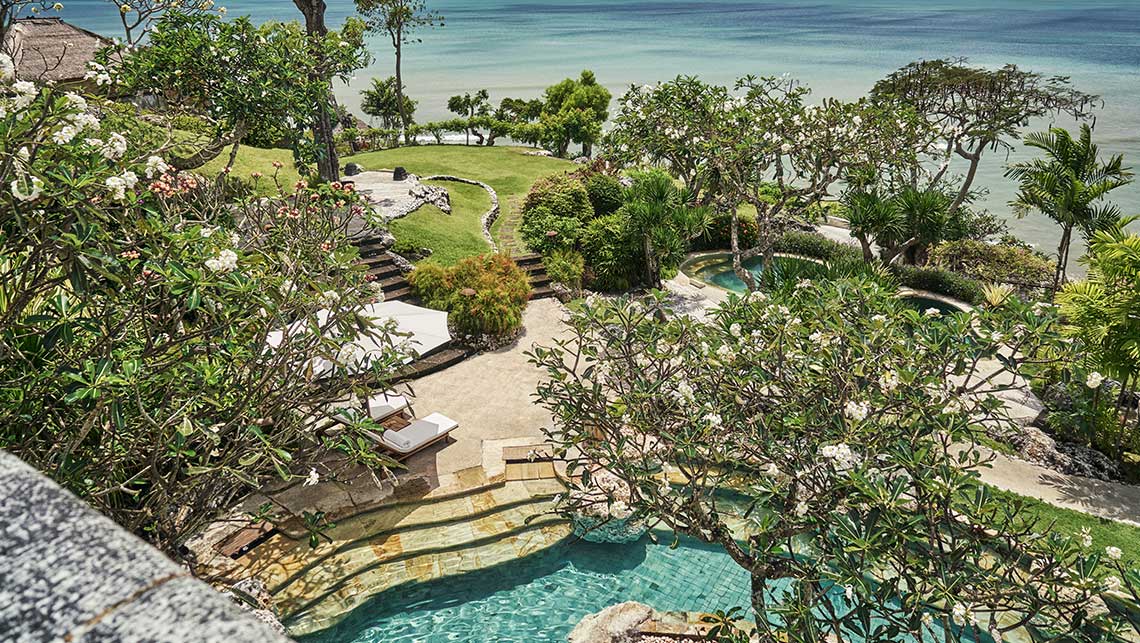
Jimbaran’s landscape design by the late Michael Wijaya features distinctive limestone walls which were quarried on-site and the garden includes rare plants like cendana to provide natural cooling of public areas. In our operations, we are always looking for new ways to minimize our impact, such as our zero-plastic policy and the on-site water purification plant we launched in 2018, which supplies drinking water to all guest rooms at Sayan and Jimbaran Bay.
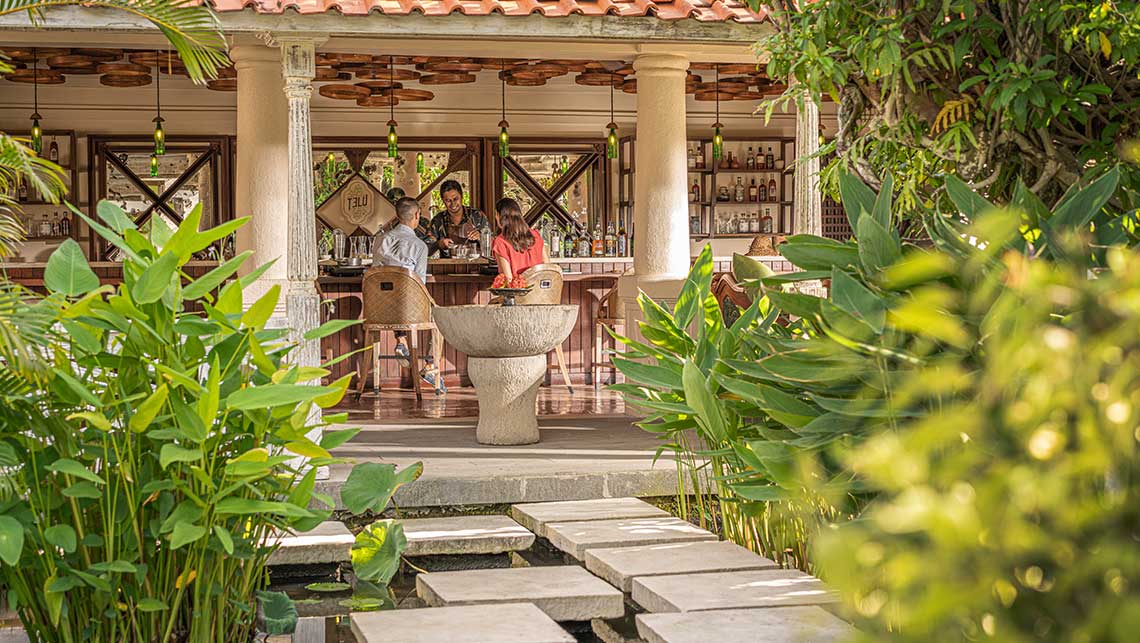
Guests often comment that they can feel the positive energy of our resort environments, it’s something intangible but very much alive. Even when we have renovated our villas or opened the new Healing Village Spa just last year, we have always kept true to our original resort concept, embedded in the philosophy of Tri Hita Karana. This was the starting point of our sustainability commitment and it remains embedded in our DNA.

Meanwhile, in 2022 Four Seasons Hotels & Resorts introduced operational field goals and KPIs for all properties globally, in support of the UN’s Sustainability Development Goals.

What did you target first, and why?
Minimising waste and energy consumption through traditional design, local sourcing and partnerships, and strict operational standards. Why? We want guests to feel an authentic connection to Bali – and a luxurious level of comfort – without it costing the Earth. At the same time, we are a business and it makes financial sense to minimize waste and energy. For Bali’s tourism-dependent economy, responsible tourism is essential to the livelihoods of millions of people, which is something the Covid border closures brought into stark focus.
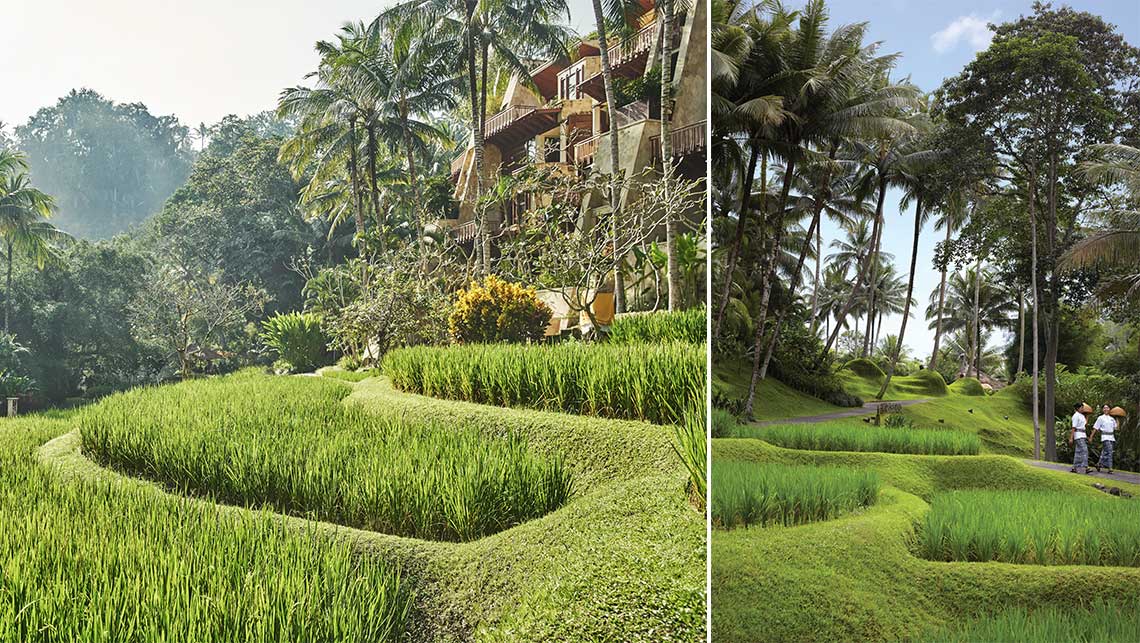
A big focus is staff training and learning. It can’t just be management saying one thing and staff doing another. We have a full-time Environment & Sustainability Manager who is responsible for achieving annual KPIs on sourcing, waste management, energy consumption and community outreach, in cooperation with all departments. And we have really imaginative, innovative staff. Last Christmas, a Sundara manager came up with the idea to make a Christmas tree entirely out of driftwood, and worked with the Engineering team on design and lighting. Over six weeks, the staff were little eco-elves creating a 4-metre-high tree out of 5,211 pieces of driftwood collected by hand from Bali’s beaches. This is just one example, but for me it represents the role hotels can play in giving Balinese people a platform to become sustainability leaders in their community. We are each responsible and we can each make a difference in our own ways, big and small.
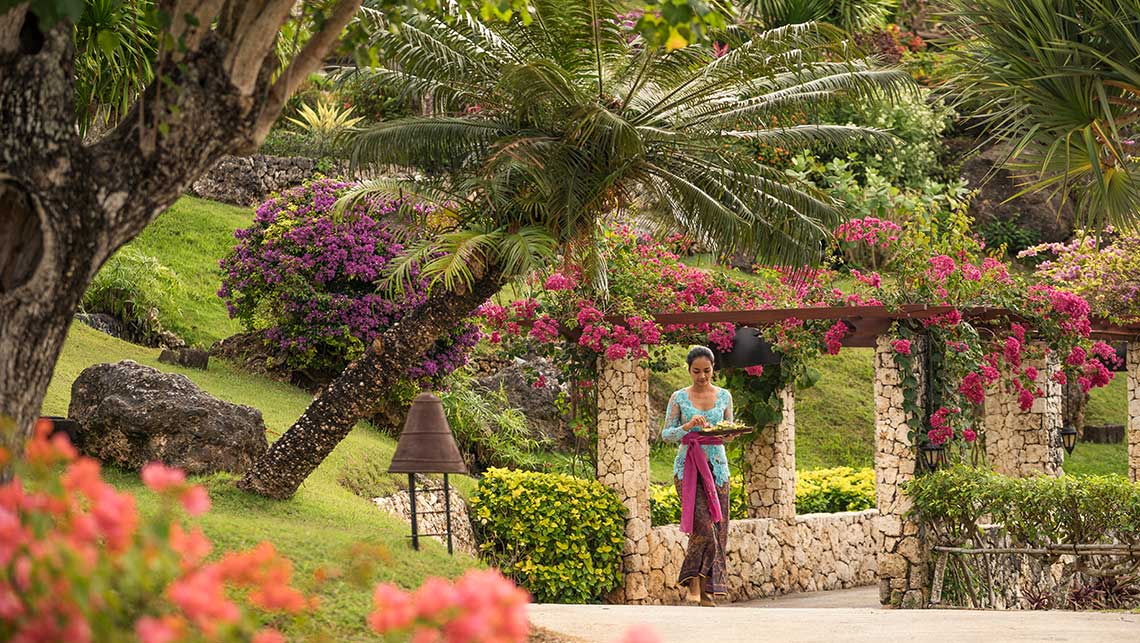
Who are your partners within your waste management programmes, and what does each one do for Four Seasons Resorts?
• ecoBali upcycles tetrapaks into cabinets and roofs – used to build the ‘tiny tetra house’ designed by architect Alexis Dornier.
• Lengis Hijau recycles used cooking oil into biofuel.
• Scholars of Sustenance (SOS) Indonesia rescues leftover buffet food, which is donated and repurposed into meals for the needy.
• Food waste separation at restaurants and the staff canteen, donated to a farm as animal feed.
• Suppliers must comply with our ban on single-use plastics for packaging, and we prioritise micro-farmers and local sourcing; for example, Sayan uses organic sea salt from a social cooperative in North Bali, and sustainable coconut oil for cooking. The oil is sourced from a family which grows the coconuts and makes the oil at home, with zero waste traditional methods. The coconut husks are used as fuel for cooking, and our Sokasi Chef’s Table dinner includes fish marinated in klengsih, a rare ingredient which is a by-product of the coconut oil production.
• In-room coffee is from the Java Mountain Coffee social enterprise. The E.U Certified biodegradable capsules are packed by a women’s cooperative in the mountains of Bali and West Java. Proceeds go back into a Women’s Empowerment Innovation Fund to invest in climate-resistant coffee trees and training.
• PT PRIA handles hazardous waste disposal eg, engine oil, medical waste from our on-site clinics, ink cartridges and batteries. At Shop And Drive, we trade-in used generator batteries at a recycling depot. All lighting is LED.
• Our most recent partner is Toyota to pilot their battery electric vehicle (BEV) which is now available for guests to take self-driving tours in South Bali.
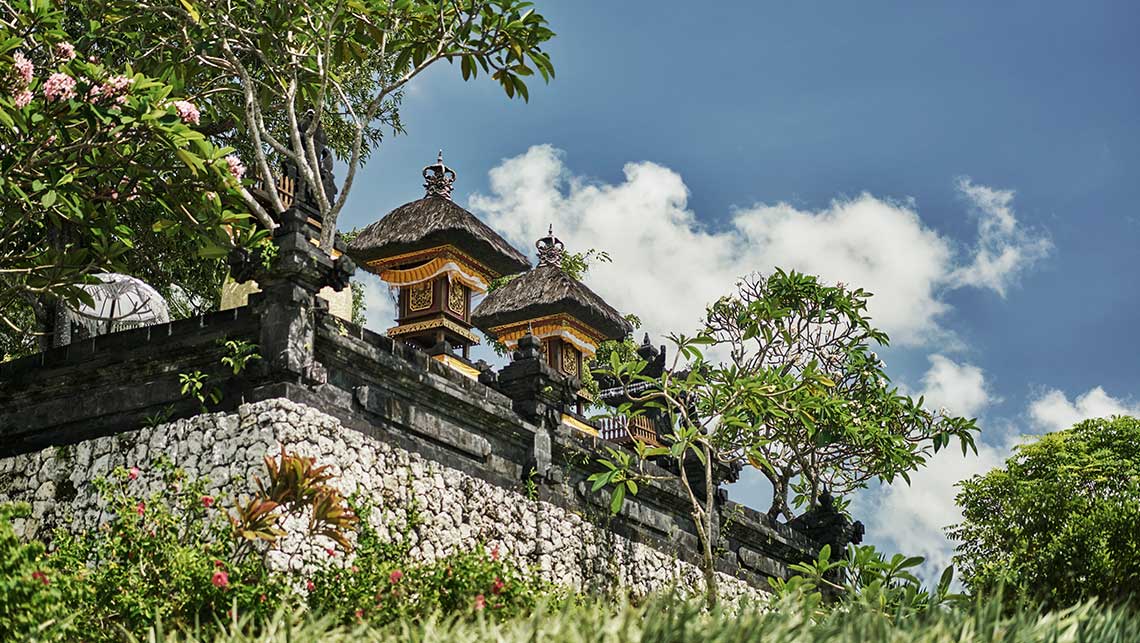
How does the Four Seasons directly engage with their guests to bring the “back of house” to the “front of house”? I mean, that is part of the problem isn’t it? Sustainability is not really considered sexy, luxury or interesting even…
I would disagree with your last comment! There’s nothing sexier than a strong leader and that’s what sustainability needs to succeed. We have so many ways for guests to directly get involved – from taking a guided walking tour of our gardens and local areas to learn about green design principles; a cooking class with ingredients from our on-site herb and vegetable gardens; a Zero Waste cocktail class at Telu, where the bar team share eco-tips with guests to take home; or taking a new Toyota BEV for a spin to experience the future of sustainable transport.
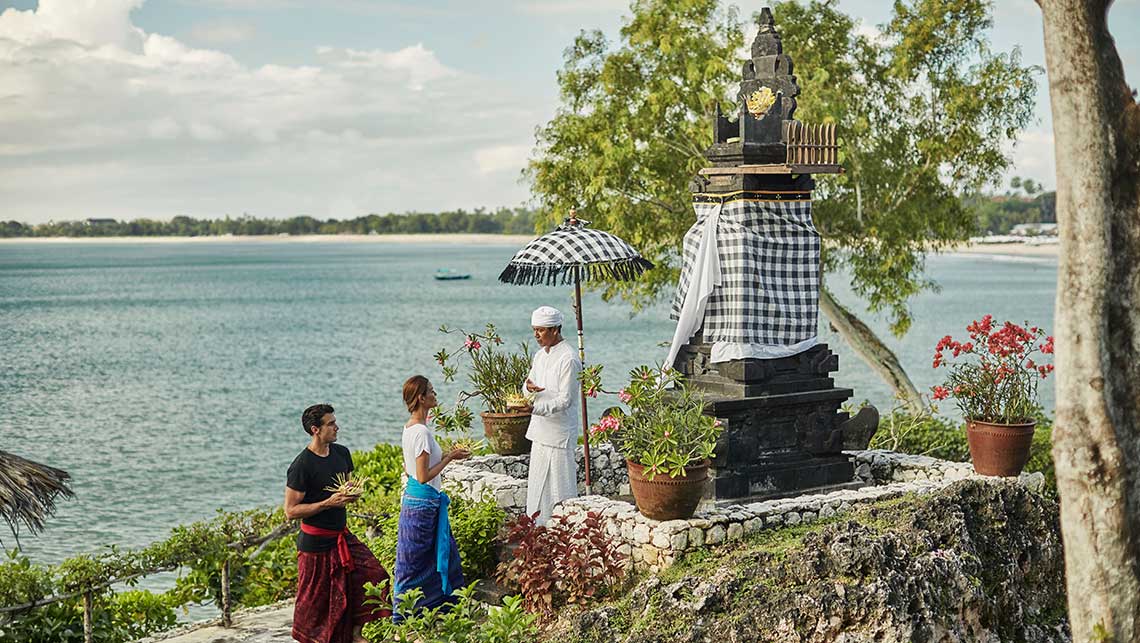
Architecture, upcycling and repurposing; your newish Telu Bar outlet has what I would call ‘good sustainability pedigree’. Tell us a bit about the outlet; who built it, with what and what is its purpose?
Telu is a beautiful venue born out of a dark period, a testament to Bali’s resilient spirit. The idea came about during Covid when our staff were frankly scratching for things to do, having very few guests, and proactively looked for ways to innovate, upgrade the resort, and stay busy and motivated. Sustainability was the vision, to create a space with an upcycled design where we could run Zero Waste Cocktail Workshops, and get creative with infusions in the Arak Cellar. Our Food & Beverage, Engineering and Gardening Departments all worked together on the design and renovation of the space, using 100% repurposed materials sourced on-site at the resort. There’s also an aromatic herb and cocktail garden and an arak cellar.

It’s a great space for a private cocktail party, and guests learn eco-tips behind our bar team’s ethos of “minimum waste, maximum flavour” – from how to minimize water and electricity consumption when mixing a cocktail, to local sourcing and why plastic straws should definitely be extinct by now – we have so many alternatives, even a lemongrass stalk does the job!
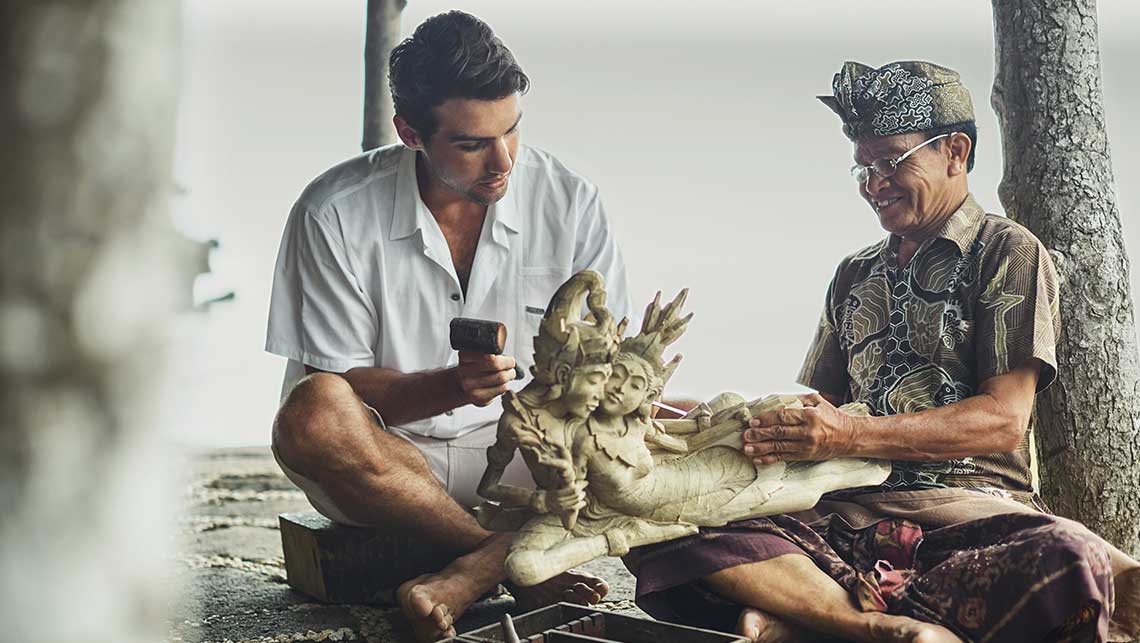
Culturally, Four Seasons Resorts are very well known for supporting, reflecting and promoting the culture of Bali. What heritage programmes have you designed for guests to enjoy?
We have a full-time Resort Priest who takes care of our temple (with a shrine dating back to the 17th century) and conducts ceremonies for staff, blessings and cultural tours for guests, and maintains the spiritual energy of the resort. Our Ganesha Cultural Programme provides guests with the opportunity to meet local artists and do workshops in painting, traditional calligraphy, songket weaving, wood carving, pencak silat martial arts, dance and rindik. The centre’s primary purpose is to actively support Balinese artists and give them a chance to connect with an international audience. We also have design and procurement policies that prioritise Balinese-made materials, to support local craftspeople.

Have you had any sustainability projects that flopped?
A few years ago, we established some bee hives at Sayan but the bees kept flying off as the area didn’t have enough flower variety to sate their appetite. We’d replace them and they’d be gone within a few weeks again. But we don’t give up that easily. Jimbaran has more floral diversity and we are literally waiting for the paint to dry on our new Balinese-style hives so our winged guests can check-in and start making honey. It’s just in time as Sayan’s former beekeeper-chef Liam Nealon is back with us, this time as Executive Chef at Jimbaran Bay.
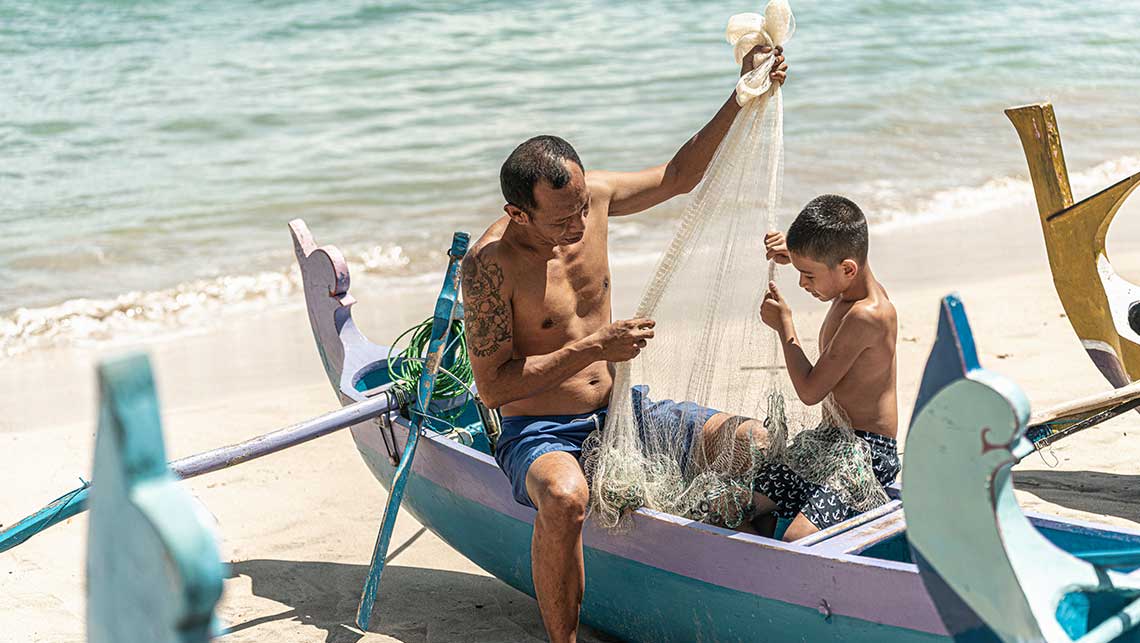
What else is upcoming in the Four Seasons pipeline?
We are one of the launch partners in Indonesia for ecoSPIRITS, the world’s first low-carbon, low-waste spirit distribution technology. It eliminates up to 80% of the carbon footprint of drinking spirits. Guilt-free cocktails! It started with just Smirnoff but more spirit companies are expected to jump on board. This is an initiative that Four Seasons Asia-Pacific is right behind as a game-changer in sustainable bar operations.
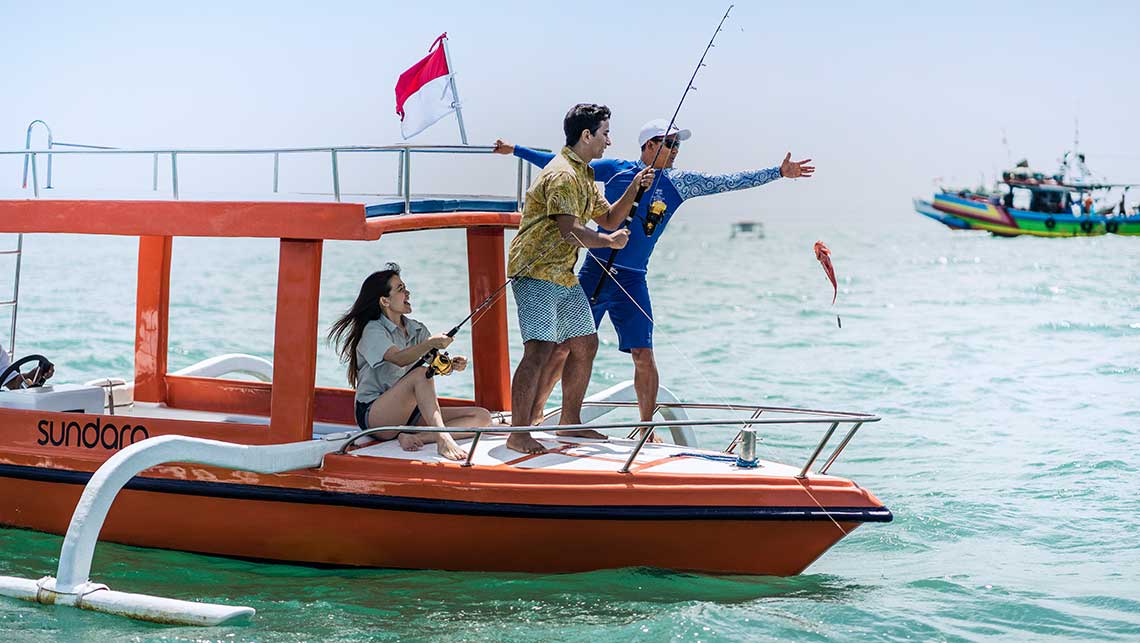
We actively recruit talent who share our vision. Our new Bar Manager is a Dive Master and passionate about the ocean, and will ensure the bar team remains cutting edge as an industry leader in sustainability. Meanwhile, our new Chef de Cuisine at Sundara, David Gavin, is deep into local sourcing. He was previously Chef de Cuisine at Mozaic and mentored by Chris Salans, and has amazing connections with local farmers. He hunts down the best and most intriguing ingredients to add an extra element of surprise and sustainability to every bite. Come and see for yourself!
Tel: +62 361 701010
IG: @fsbali
FB: @FourSeasonsResortsBali
www.fourseasons.com/jimbaranbay
www.fourseasons.com/sayan
































